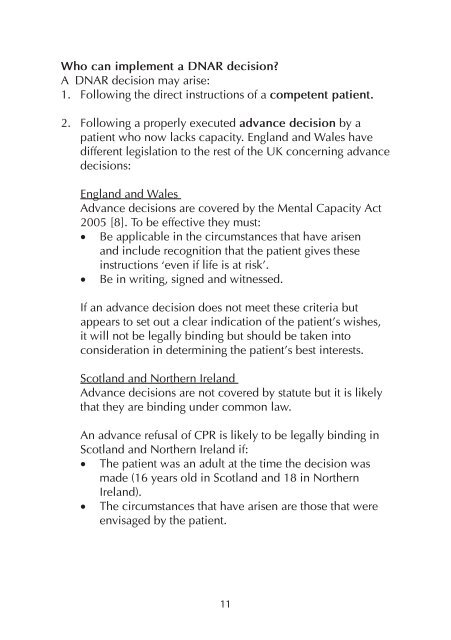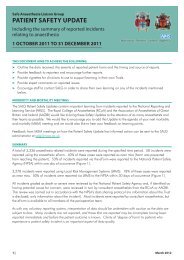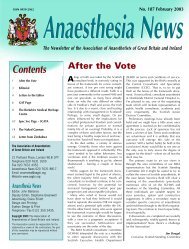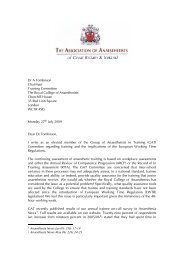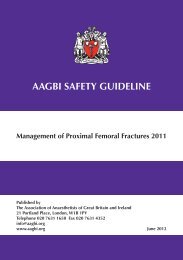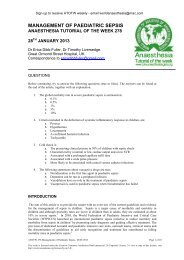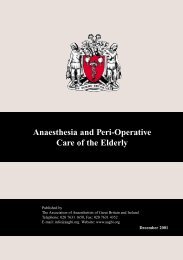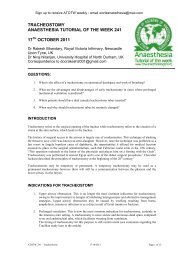Do Not Attempt Resuscitation (DNAR) Decisions in the ... - aagbi
Do Not Attempt Resuscitation (DNAR) Decisions in the ... - aagbi
Do Not Attempt Resuscitation (DNAR) Decisions in the ... - aagbi
You also want an ePaper? Increase the reach of your titles
YUMPU automatically turns print PDFs into web optimized ePapers that Google loves.
Who can implement a <strong>DNAR</strong> decision?<br />
A <strong>DNAR</strong> decision may arise:<br />
1. Follow<strong>in</strong>g <strong>the</strong> direct <strong>in</strong>structions of a competent patient.<br />
2. Follow<strong>in</strong>g a properly executed advance decision by a<br />
patient who now lacks capacity. England and Wales have<br />
different legislation to <strong>the</strong> rest of <strong>the</strong> UK concern<strong>in</strong>g advance<br />
decisions:<br />
England and Wales<br />
Advance decisions are covered by <strong>the</strong> Mental Capacity Act<br />
2005 [8]. To be effective <strong>the</strong>y must:<br />
• Be applicable <strong>in</strong> <strong>the</strong> circumstances that have arisen<br />
and <strong>in</strong>clude recognition that <strong>the</strong> patient gives <strong>the</strong>se<br />
<strong>in</strong>structions ‘even if life is at risk’.<br />
• Be <strong>in</strong> writ<strong>in</strong>g, signed and witnessed.<br />
If an advance decision does not meet <strong>the</strong>se criteria but<br />
appears to set out a clear <strong>in</strong>dication of <strong>the</strong> patient’s wishes,<br />
it will not be legally b<strong>in</strong>d<strong>in</strong>g but should be taken <strong>in</strong>to<br />
consideration <strong>in</strong> determ<strong>in</strong><strong>in</strong>g <strong>the</strong> patient’s best <strong>in</strong>terests.<br />
Scotland and Nor<strong>the</strong>rn Ireland<br />
Advance decisions are not covered by statute but it is likely<br />
that <strong>the</strong>y are b<strong>in</strong>d<strong>in</strong>g under common law.<br />
An advance refusal of CPR is likely to be legally b<strong>in</strong>d<strong>in</strong>g <strong>in</strong><br />
Scotland and Nor<strong>the</strong>rn Ireland if:<br />
• The patient was an adult at <strong>the</strong> time <strong>the</strong> decision was<br />
made (16 years old <strong>in</strong> Scotland and 18 <strong>in</strong> Nor<strong>the</strong>rn<br />
Ireland).<br />
• The circumstances that have arisen are those that were<br />
envisaged by <strong>the</strong> patient.<br />
11


